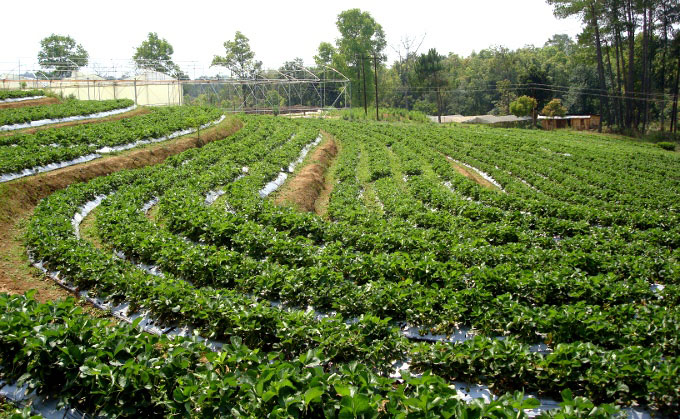Horticulture farming in Kenya refers to an intensive cultivation of vegetables, fruits and flowers for sale. At times the term has been confused with market gardening which is an intensive cultivation of vegetables and fruits for sale in the nearest urban centers. Horticulture has continued to be one of the fastest growing sub sectors in Kenya’s export sector, growing at over 7% annually. This continued growth is attributed to the dynamic private sector and the effective facilitation role provided by the relevant public and private sector institutions. This has been brought about by intensive market promotion programs implemented by the sector stakeholders.
Characterized by highly capital intensive methods of production, horticulture is mainly practiced close to urban areas because of the highly perishable nature of the produce. The activity is mainly export-oriented, with advanced methods being employed to increase productivity.
Kenya has a long history of growing horticultural crops for both domestic and export markets. Kenya’s ideal tropical and temperate climatic condition makes it favorable for horticulture production and development.
About two million are employed in the sub-sector, most of them small-scale growers who constitute 80 per cent of producers. This alleviates poverty and provides higher incomes to small scale farmers.
This are Conditions that favor horticultural farming in Kenya:
- Climate: The hot and wet climate favors the growth of tropical crops, while the cool and wet conditions prevailing in Kenya Highlands especially in areas like Limuru favors the growth of temperate crops like plums, pears, apples and grapes.
- Soil:The fertile soils of volcanic origin favor growth of a variety of crops. This fertility is sustained by the liberal application of fertilizers.
- Market: The high demand for the products both locally and internationally has led to the rapid development of the industry. The sprawling and mushrooming of old and new urban centers provide ready markets for horticultural products locally. Capital: Investment by large companies has led to the development of horticulture especially growing of fruits and vegetables. For instance, the Del Monte Company of Thika has large farms and exports most of canned products to Europe and Middle East.
- Research: Available technical and financial assistance from friendly countries. Kenya Government engaged the German Agricultural Team (GAT) to assist in the promotion of agricultural development with effect from 1965.
- Government policy: The Government through its export promotion drive is encouraging the diversification of export crops with a view to broadening the country’s export base.
Some of these technologies used by small and large scale farmers include: – drip irrigation, fertigation systems, greenhouse ventilation systems, net shading, pre-cooling, cold storage facilities, grading, banqueting, fertilizer recycling systems to prevent wastage, wetlands for waste water treatment, artificial lighting to increase day length, grading/packaging sheds, and refrigerated trucks while Most of the products are consumed locally, especially by the urban population. Only a small percentage is exported. From the farm gate, the products are carried by people, donkeys and pick-ups to the concentration centers (grading sheds) located by the roadside. They are then graded and collected by the exporters and middlemen, who transport them in Lorries or pick-ups to the airport for exportation.

